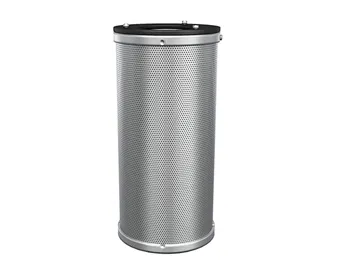 Tel:
+8615930870079
Tel:
+8615930870079
اگست . 13, 2024 17:17 Back to list
Effective Carbon-Infused Cellulose Filter Cartridges for Enhanced Water Purification Solutions
The Benefits and Applications of Carbon Impregnated Cellulose Filter Cartridges
In an era where environmental protection and sustainable practices are paramount, the quest for effective filtration solutions has sparked innovation in various industries. One such advancement is the development of carbon impregnated cellulose filter cartridges. These unique filtration tools leverage the inherent properties of cellulose and the adsorption capabilities of activated carbon, offering a versatile solution for countless applications.
Understanding Carbon Impregnated Cellulose Filters
Carbon impregnated cellulose filters are primarily made from cellulose fibers that are treated with activated carbon. Cellulose, a natural polymer derived from plant materials, is not only biodegradable but also boasts excellent mechanical properties, making it an ideal substrate. When impregnated with activated carbon, the filter takes on enhanced adsorption capabilities that significantly improve its ability to capture contaminants.
Activated carbon is renowned for its high surface area and porosity, characteristics that allow it to effectively capture impurities. The combination of cellulose's structural integrity and activated carbon's adsorptive properties results in a filter cartridge that meets stringent filtration requirements while being environmentally friendly.
Applications Across Industries
The applications of carbon impregnated cellulose filter cartridges are diverse, spanning several industries. One of the primary uses is in water treatment. These filters can effectively remove chlorine, volatile organic compounds (VOCs), and other harmful substances from drinking water, ensuring it is safe and palatable. Their ability to adsorb odors and impurities contributes to improved taste and quality, making them ideal for residential water purification systems.
carbon impregnated cellulose filter cartridge

In industrial settings, these filters are instrumental in air quality management. They are utilized in HVAC systems to purify indoor air by adsorbing pollutants, allergens, and odors, thus improving workplace safety and comfort. Additionally, they play a crucial role in emissions control in various manufacturing processes, reducing harmful discharge into the environment.
Another significant application is in the food and beverage industry. Carbon impregnated cellulose filters are employed in the clarification and purification of liquid products, ensuring that contaminants do not compromise the safety and quality of food items. Their ability to remove bitter flavors and smells enhances the overall sensory experience for consumers.
Environmental Benefits
One of the standout benefits of carbon impregnated cellulose filter cartridges is their environmental friendliness. Being primarily made from biodegradable cellulose, these filters contribute less to landfill waste compared to traditional synthetic filters. Moreover, the use of activated carbon, often derived from renewable sources, aligns with global sustainability goals.
Recycling and reusing these filter cartridges further reduce environmental impact, making them a compelling choice for consumers and businesses alike. When combined with the rising demand for eco-friendly products, carbon impregnated cellulose filters represent a responsible choice that supports sustainable living.
Conclusion
In conclusion, carbon impregnated cellulose filter cartridges offer a powerful combination of functionality, versatility, and environmental sustainability. Their application across various sectors underscores their importance in modern filtration solutions. As industries continue to seek innovative and responsible ways to address contamination and improve quality, these filter cartridges will undoubtedly play a crucial role in creating a cleaner, safer world. By choosing such advanced filtration solutions, consumers and businesses contribute to healthier environments, emphasizing the need for sustainability in our increasingly industrialized society.
-
Nano Fiber Technology: Revolutionizing Cartridge Dust Collector FiltersNewsAug.06,2025
-
How Activated Carbon Air Cartridges Eliminate OdorsNewsAug.06,2025
-
Dust Filter Cartridge Handling Fine Particulate MatterNewsAug.06,2025
-
Cartridge Dust Collector Filter for Welding Fume ExtractionNewsAug.06,2025
-
Activated Carbon Filter Cartridge Effectiveness Against VOCsNewsAug.06,2025
-
Activated Carbon Air Filter Cartridge Benefits ExplainedNewsAug.06,2025

 Email:
Email:





